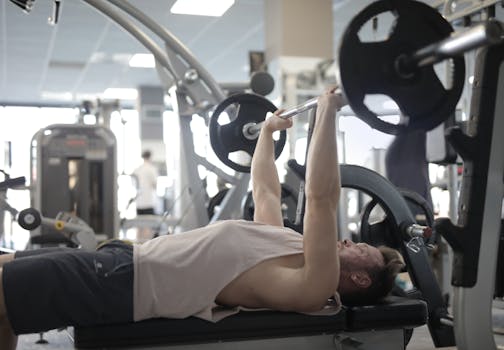
Takeaways
- Exercise can be a powerful tool in managing anxiety and depression.
- Even small amounts of physical activity can lead to significant mood improvements.
- Finding an enjoyable form of exercise can make all the difference.
- Consistency is key—aim for regular activity to see lasting effects.
- Listening to your body and being mindful are important during your fitness journey.
Boost Your Mood: How Exercise Can Help Manage Anxiety and Depression
Hey there! If you’ve ever felt the weight of anxiety or depression, you know how it can feel like you’re stuck in a fog. I’ve been there myself, and let me tell you, finding a way out can sometimes feel daunting. But what I discovered along my journey is that one of the best tools in my mental health toolbox has been something we all know about but often overlook: exercise!
The Connection Between Exercise and Mental Health

Research backs this up too. Studies have shown that regular physical activity can help reduce symptoms of anxiety and depression. Whether it’s a brisk walk, a dance class, or hitting the gym, getting your body moving can be a game changer! It’s like giving your brain a nice refresh.
Finding What Works for You
Now, let’s get real for a second. Not everyone loves running marathons or lifting weights. And that’s totally okay! The key is to find an activity that you genuinely enjoy. When I started trying different exercises, I found that I loved yoga and dance! They not only got my heart rate up but also allowed me to express myself creatively.
So, how do you find what works for you? Start by exploring different activities. Maybe you’ll fall in love with swimming, cycling, or even gardening. The important thing is that it should feel like fun, not a chore. When you look forward to your workouts, you’re much more likely to stick with them.
Making Exercise a Regular Habit
Consistency is crucial. I know life can get busy, and it’s so easy to skip a workout or two. But I’ve learned that even small amounts of movement can make a big difference. When I made a commitment to myself to move for at least 30 minutes a day, I noticed significant changes in my mood. It didn’t have to be a full workout session; sometimes, a quick walk around the block was just what I needed to clear my head.
To help build this habit, I started scheduling my workouts like any other important appointment. I also made it social by inviting friends to join me. Having a workout buddy not only made it more enjoyable, but it also kept me accountable. Plus, we got to catch up while breaking a sweat!
Listening to Your Body
As you embark on your fitness journey, it’s essential to listen to your body. There are days when you might not feel like working out, and that’s okay. On those days, I give myself permission to take it easy. Maybe instead of a high-intensity workout, I’ll opt for some gentle stretching or a leisurely stroll. The goal is to nurture your body and mind, not to push yourself to the limit.
Being mindful about how you feel during and after exercise can also help you gauge what works best for you. If something feels off or uncomfortable, don’t hesitate to try a different activity. Your body knows best!
FAQs
How often should I exercise to manage anxiety and depression?
While there’s no one-size-fits-all answer, aiming for at least 150 minutes of moderate-intensity exercise each week is a good target. This can be broken down into manageable chunks throughout the week.
Can I exercise if I’m feeling really down?
Absolutely! Sometimes, even a short walk can help lift your spirits. It’s all about finding what feels right for you in that moment.
What types of exercise are best for mental health?
Any form of exercise can be beneficial—whether it’s cardio, strength training, yoga, or dancing. The best exercise is the one you enjoy and can stick with!
Is it normal to feel tired after exercising?
Yes, it’s completely normal! Especially if you’re just starting out. However, be mindful of how you feel. If exhaustion persists, consider easing back on the intensity or duration of your workouts.
Can exercise replace therapy for anxiety and depression?
Exercise is a fantastic complementary tool, but it should not replace professional help if you need it. Always consult with a mental health professional for guidance tailored to your needs.




